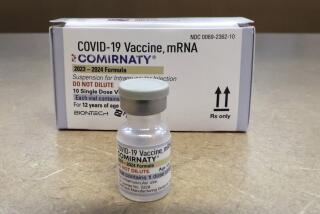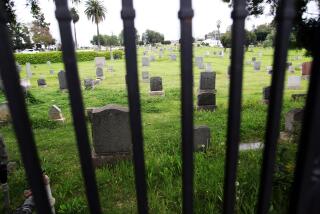Americans urged to get colon cancer screening earlier

Americans should start getting screened for colon cancer earlier, at age 45, instead of waiting until they’re 50, according to guidelines released Tuesday.
The U.S. Preventive Services Task Force said it’s time for the change because colorectal cancer increasingly is appearing in younger adults.
Colorectal cancer is one of the nation’s leading cancer killers, claiming about 50,000 lives a year. Overall, cases and deaths have inched down in recent years, thanks in part to screening tests that can spot tumors early — or even prevent them by removing precancerous growths.
Colorectal cancer is most common in older adults, and the task force has long recommended that people ages 50 to 75 get screened. But the rate of new cases before age 50 has been rising since the early 2000s. So the new guidelines say adults at average risk of colorectal cancer should be screened from ages 45 to 75.
Colorectal cancer, long considered a scourge of the aged, has been steadily rising among young and middle-aged adults in the United States, new research shows.
The decision, published in the Journal of the American Medical Assn., means most insurance plans would have to cover the checks without charging a copay. The change brings the task force in line with the American Cancer Society, which lowered its recommended screening age to 45 in 2018.
The new advice shows “45 is the new 50 for this important cancer prevention screening intervention,” Dr. Kimmie Ng of the Dana Farber Cancer Institute, who wasn’t involved in the task force deliberations, and others wrote in JAMA.
How often people need to get checked depends on the type of screening they choose. There are a variety of options, including yearly stool-based tests or colonoscopies that may be done every 10 years.
But about 1 in 4 people between ages 50 and 75 have never been screened for the disease.






